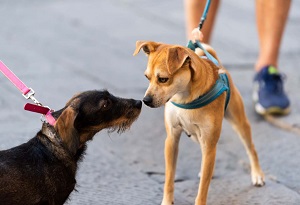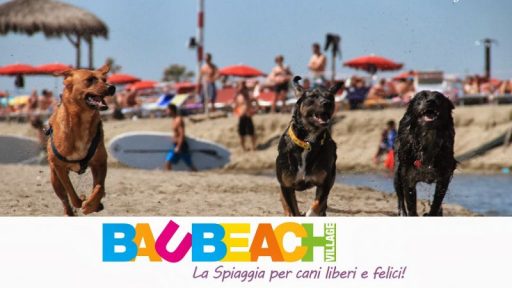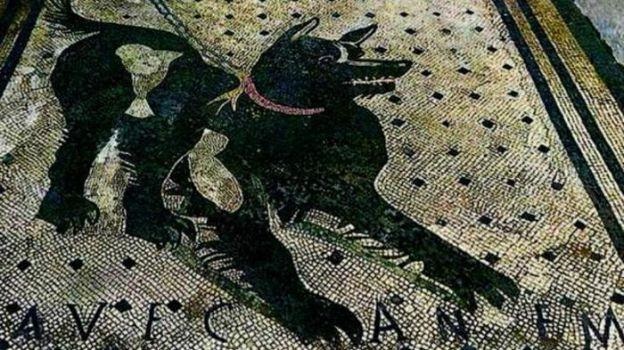Many cross-cultural researchers ignore Europe-US comparisons because our similarities are far greater than are our differences. When a difference is discovered, however, it may have important learning implications for both sides.
Often a research question is inspired by a simple observation; like the difference tourists notice when it comes to the demeanor of pet dogs in the bel paese. Why do Italian dogs seem so much more serene than dogs in the US? Why is there a far lower percentage of dog bites, dog fights, and dog maulings in Italy (and in Europe in general) than in the US?
Perhaps dogs in Italy are considered more of a natural element of daily life—nothing more and nothing less. You will often see them—even unleashed—paying no attention to strangers, but rather walking or sitting calmly alongside their owner, as if just being an unobtrusive part of the daily social scene is all that is necessary for a harmonious cohabitation. In Italy, dogs are allowed in more places than just pet food stores. They are rarely if ever caged in a crate all day (in some European countries crates are actually illegal and only allowed to be used for transportation or when a dog is recovering from surgery). Italian mothers do not encourage their children to pet strange dogs, nor are dog walkers who run into each other along the cobblestone streets commonly asking if their dogs could “meet” and sniff each other out. Dogs are not treated as entertainment in Italy, nor given sharp commands one moment and high-pitched baby talk the next.
From self-report data, it is clear that Italians, like Americans, consider their pet canines to be important family members–just not necessarily human family members. Perhaps therein lies an important distinction. And let’s face it: Italy has a lot more experience cohabitating with our canine companions than we do.
Dogs have played an important role across the European continent as early as the Roman Empire. From archeological examinations in Pompeii, a city that was buried and destroyed by the violent Vesuvius volcano of 79AD, researchers have found evidence of “intentional” breeding of dogs for different purposes. Smaller dogs, for example, were valued as companions, while larger dogs were used for hunting or to guard homes, as we learned from the tragic plaster cast of the Pompeian guard dog left chained to his post to be suffocated by the rising ash of the volcano while his owners fled.
Today, according to a recent ISTAT survey, about 30 % of households in Italy include a dog (that number has jumped up by 18% in the last year alone, according to the most recent report from Statistica); and a little under 20% of Italian households include cats. Love for animals can be found all across the boot-shaped peninsula. A few examples:
- 82% of Italians, according to DOXA, consider their pets to be actual members of the family.
- Pope Francis himself once scolded young Italian couples for selfishly substituting pets over having children.
- Last year the Roman mayor Gualtieri called for a New Year’s Eve firework ban, not only to protect human safety, and avoid polluting the environment, but also to avoid frightening animals.
- Rome has its own designated beach for dogs. Located near Fiumicino airport, Baubeach has been in operation for 23 years. Well-behaved dogs are free to play, swim, and run unleashed, while owners can take a Yoga class if they wish.
- An International IKEA in Italy welcomed stray dogs that needed food and a place to sleep.
 Some conclude that perhaps Italians interact with their dogs the way Americans interact with our service dogs. When service dogs are with their owner, they are allowed to just “be”, in order to give their full attention to their owner, and avoid being distracted. They are not to be touched by strangers, made to do tricks for our entertainment, nor will you see them dressed up in “cutesy” uncomfortable costumes for the sake of making a human smile. Seeing their loyal and adoring face each day is all we should ever need.
Some conclude that perhaps Italians interact with their dogs the way Americans interact with our service dogs. When service dogs are with their owner, they are allowed to just “be”, in order to give their full attention to their owner, and avoid being distracted. They are not to be touched by strangers, made to do tricks for our entertainment, nor will you see them dressed up in “cutesy” uncomfortable costumes for the sake of making a human smile. Seeing their loyal and adoring face each day is all we should ever need.

While I, too, am certainly guilty of pampering my dogs, along with many of my fellow dog-owner Americans, perhaps our dogs might benefit by not trying to turn them into mini-humans but by giving them more of a natural family member role; one that entails mutual respect for the canine species to which they belong. After all, dogs confer so many benefits to us, including increased levels of happiness, lower levels of stress, comfort through grief, companionship for soldiers, the elderly, and the lonely; and rehabilitative benefits for prisoners and hospitalized patients. Our canine companions help us to get exercise and can help bring out the best of our human nature. They deserve homes–good loving ones–where they can live happily, safely and free from all harm.
References/For Further Reading:
Zedda1*, P. Manca1, V. Chisu1, S. Gadau1, G. Lepore1, A. Genovese2 and V. Farina1 (2006). Ancient Pompeian Dogs – Morphological and Morphometric Evidence for Different Canine Populations. Anat. Histol. Embryol. 35, 319–324 (2006) doi:10.1111/j.1439-0264.2006.00687.x
Vinassa, M., Vergnano, D., Valle, E. et al. Profiling Italian cat and dog owners’ perceptions of pet food quality traits. BMC Vet Res 16, 131 (2020). https://doi.org/10.1186/s12917-020-02357-9
Mónica Teresa González-Ramírez (2019) Compatibility between Humans and Their Dogs: Benefits for Both. Animals 9, 674; doi:10.3390/ani9090674.
https://www.wantedinrome.com/news/pope-slams-couples-for-having-pets-instead-of-kids.html
https://www.wantedinrome.com/news/rome-bans-new-years-eve-fireworks.html
https://www.wantedinrome.com/news/baubeach-romes-dog-beach-reopens-for-the-summer.html
https://abcnews.go.com/International/ikea-italy-welcomes-stray-dogs-winter/story?id=59315315
https://www.bva-doxa.com/en/pets-life/
https://www.iii.org/fact-statistic/facts-statistics-pet-ownership-and-insurance
https://blog.dogsbite.org/2021/06/2020-dog-bite-fatality-statistics-discussion.html





